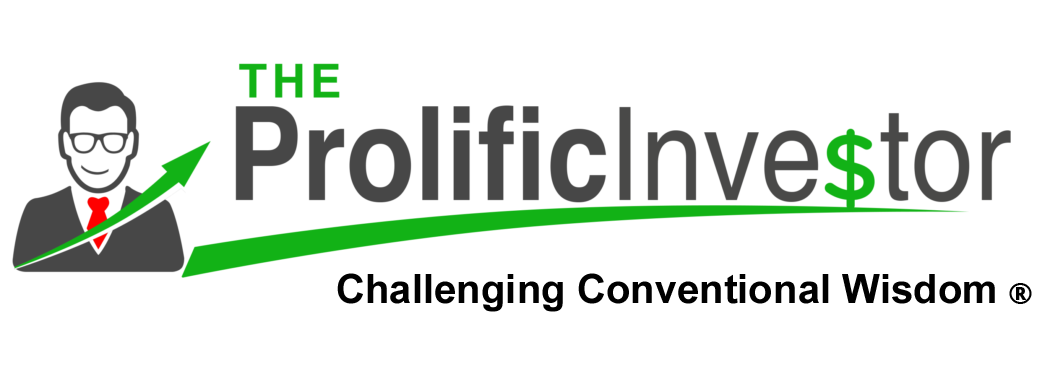Do you have a scarcity or abundance mentality? What’s that, you ask? As usual, it’s related to money and how we think about it. Most of us want more of it, but how do we get it? Your personal finances are just like a business, and just like a business, there are two ways to grow your bottom line – increase revenue or decrease expenses.
Let me put it another way; are you focused on cutting expenses or increasing your income? Are your scrimping and saving or finding ways to increase the size of the pie (your income)?
I was raised in the Midwest with its values, and being frugal was certainly one of them. Over time; however, I’ve drifted somewhat from those values. That doesn’t mean I’m wasteful or squander money (I’ve never purchased a new car, and one of my daily drivers is a 1992 F150), but I place a high value on my time and try to use it wisely and efficiently. Like most of my articles, let me compare two different scenarios.
The Coupon Clipper (scarcity mentality)
Let’s say you use coupons to reduce your household expenses and spend one hour/week or fifty-two hours/year doing so. Let’s further say that your efforts will save you $200/year. According to Shopper.com’s 2019 Coupon Culture Report, “If the average American could find a 5% discount for every online purchase, they’d save nearly $200 per year.” But you clip coupons better than the average American; so for this example, your coupons will save you $1,000/year.
Let’s do the math on this: $1,000 savings/52 hours = $19.23/hour
Unless you invested your $1,000 savings, you received no compounding effect like you would with a savings account or some other investment. The bottom line is that for every hour you spent researching, finding, and utilizing coupons; you saved $19.23. If you’re currently earning $10/hour, that might be a good use of your time. If you’re earning $50/hour, not so much. It all depends on what your time is worth?
The Serious Investor (abundance mentality)
Alternatively, instead of clipping coupons, let’s say you decide to become a serious investor. Toward this effort, you spend two hours/day for ten years or 7,300 hours studying investing and finance. Your activities include: reading books and articles, listening to Podcasts, taking classes, attending seminars, and networking with other serious investors. These efforts result in some level of increase in your net worth. The amount of the increase will depend on numerous factors: your starting point, your level of effort and consistency, picking good mentors and education, the magnitude of your mistakes and whether you learn from them, your belief in yourself, and frankly – some luck. Below are some examples of net-worth increase and their corresponding hourly rate:
- $100,000 net worth increase/7,300 hours = $13.70/hour
- $250,000 net worth increase/7,300 hours = $34.25/hour
- $500,000 net worth increase/7,300 hours = $68.49/hour
- $1,000,000 net worth increase/7,300 hours = $136,99/hour
- $2,000,000 net worth increase/7,300 hours = $273.97/hour
- $3,000,000 net worth increase/7,300 hours = $410.96/hour
- $5,000,000 net worth increase/7,300 hours = $684.93/hour
Until your net-worth increase rises above $100,000, looking strictly at the numbers, it looks like you’re better off clipping coupons. But there’s something else going on here, something a bit harder to quantify; you’re getting a compounding effect in two areas:
- The compounding effect of your net worth growing
- The compounding effect of your financial knowledge growing
Assuming you’re reinvesting some of your net-worth growth, you’re getting compounding returns.
Additionally, any type of consistent learning grows in a compounding manner also. Think about that first year you took piano or guitar lessons, not so pretty. Each successive year of lessons, however, built on the previous one until, by the end of year ten, you were playing at an expert level! The same is true with consistent financial education. At the end of ten years, you’ll also be an expert, but your expertise will not be measured by applauding audiences; it will be measured in net worth and cash flow!
The sum of these two compounding effects has the possibility to explode your net worth or passive income, depending on your financial objectives.
I know some will find these numbers shocking and perhaps unbelievable, but I can tell you they’re achievable. I’ve seen incredible financial, knowledge, and relationship growth (I’ve met some great people) in my ten-plus year journey, and I know many others who have done the same.
At the end of the day, the choice is yours; you can take the well-traveled path of scarcity or the less-traveled path of abundance. From my experience, the less-traveled path is more interesting and rewarding.
Image by Gerd Altmann from Pixabax.


Interesting concept. In short it appears we are working both ends of the spectrum, slightly in the scarcity mode, not too proactive but take advantage of them when mailed to us, particularly for art supplies to support the Arts and Crafts business. On the other end…..abundance…we are just getting started..but have been plowing through many books, podcasts, and other media to increase our financial intelligence. The biggest take away at this point in life is apply things learned to increase your net worth as quickly as possible with the amount of time left in life and don’t forget to have fun spending it too.
If you have children…any age… teaching them (show them and give them tools to work with) early about abundance with a balance of scarcity, and demonstrate to them the value of “time is money”, I truly feel like a child as I discover more and more in this new world and it is fascinating how many ways (infinite, I suppose) there are to make money.
Thanks Chris for sparking my thought process again!
Thanks for your comments Tom! Agree, most of us are somewhere on the scarcity-abundance spectrum. Keep up the good work, applying newly gained knowledge for effective action!